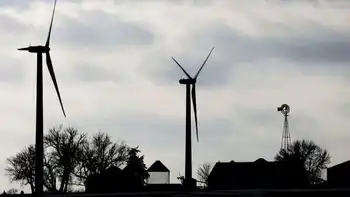Wisconsin to review WPS power plant proposal
- The Wisconsin Public Service Commission has opened a regulatory case for utility Wisconsin Public Service Corp.'s plan to build a $750 million coal-fired power plant.
The regulatory commission, in a notice posted on its Web site late last week, said the utility, a unit of WPS Resources Corp., of Green Bay, Wisconsin, proposed to spend more than $1 billion to acquire new electric generation to serve its customers.
Environmental groups in Wisconsin are expected to oppose the project.
The proposed power plant, known as Weston 4, is a 500 megawatt coal-fired unit scheduled to go into commercial operation at the existing Weston power station in 2008.
The unit would supply electricity for more than 400,000 homes.
The commission said Wisconsin Public Service plans to file later this year for a certificate and other government approvals to build Weston 4.
The utility asked the commission to rule that it is "prudent" to go ahead with planning and development of the plant and to incur up to $71 million in expenses and pre-construction costs.
The Sierra Club plans to oppose the plant in the regulatory proceedings, said Emily Green, a director of the club's Madison, Wisconsin, office.
"The bottom line is we can do much better than build another coal-fired power plant," said Green, adding that Wisconsin needs cleaner fuel sources like natural gas and renewable energy.
Wisconsin Public Service has more than 475,000 customers in northeast and north central Wisconsin and on Michigan's Upper Peninsula.
Related News

Reconciliation and a Clean Electricity Standard
WASHINGTON - The Biden Administration and Democratic members of Congress have supported including a clean electricity standard (CES) in the upcoming reconciliation bill. A CES is an alternative to pricing carbon dioxide through a tax or cap-and-trade program and focuses on reducing greenhouse gas emissions produced during electricity generation by establishing targets. In principle, it is a technology-agnostic approach. In practice, however, it pushes particular technologies out of the market.
The details of the CES are still being developed, but recent legislation may provide insight into how the CES could operate. In May, Senator Tina Smith and Representative Ben Ray Luján…




